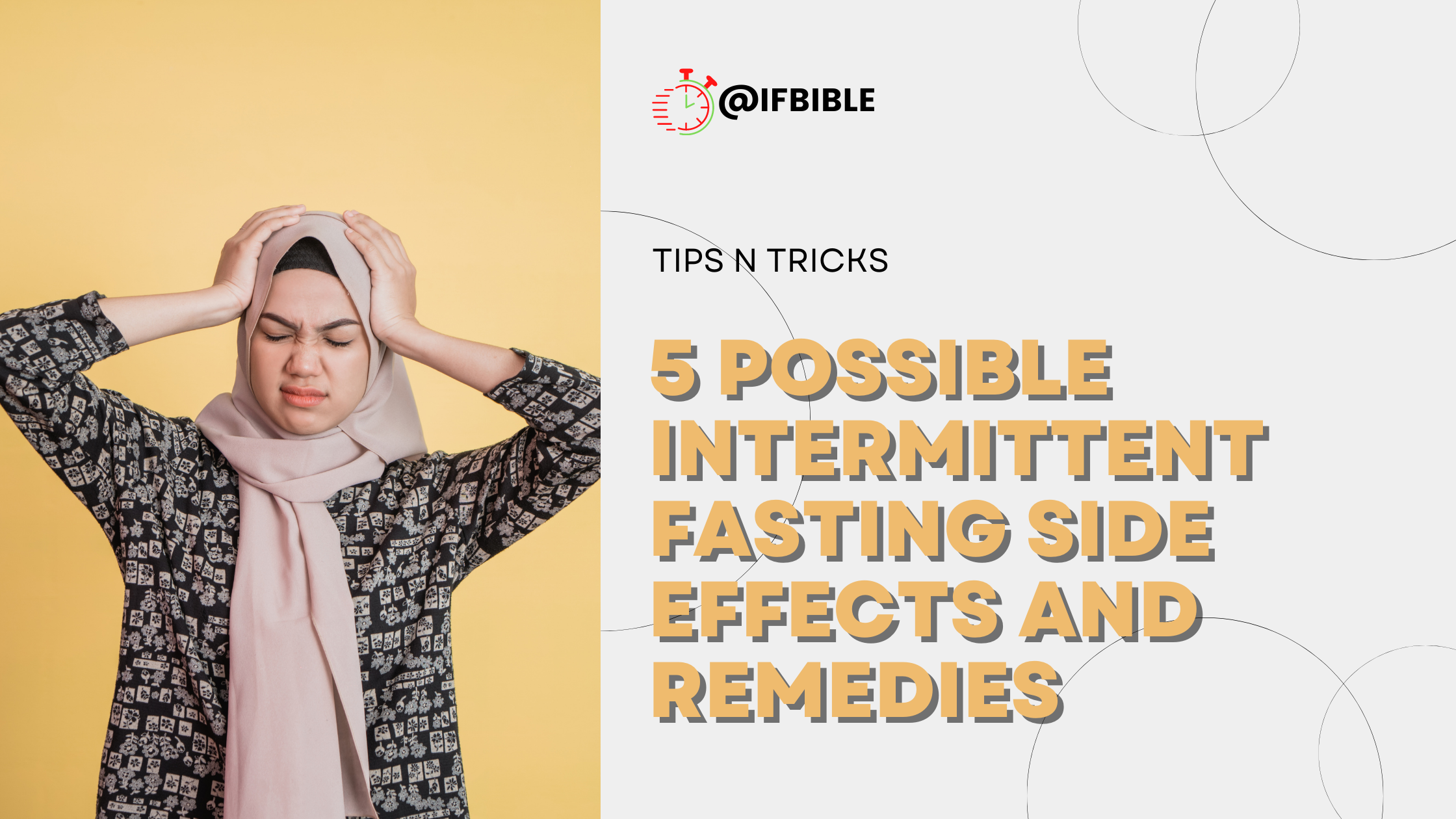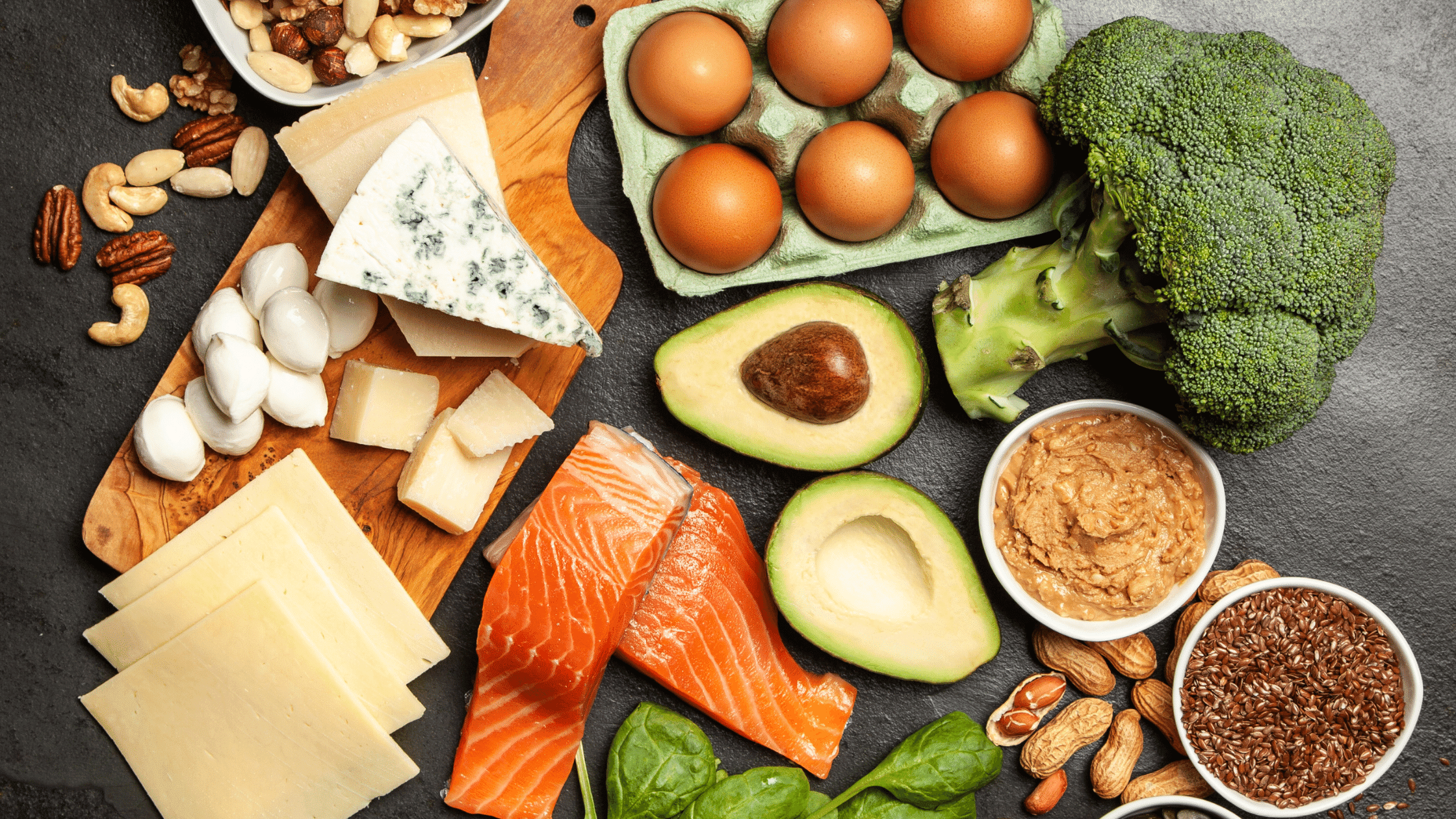Important Intermittent Fasting Tips you should Know
There
are a lot of things you could do for your health, intermittent fasting arguably
the most important thing you can do and there's nothing else that even comes
close in creating a healthier life. on the flip side, snacking and continued
eating is one of the worst things you can do for your health.
In
this post today, I’m going to show you the basics of how to do intermittent
fasting and this isn’t actually just for the beginners only. If you have
advanced into intermittent fasting this will be a refresher course.
What
happens when you do intermittent fasting?
When
we fast, we try to shift our metabolism from sugar burning to fat burning. A
common confusion that a lot of people have when they're fasting is that they
think their body is starving. They think it's not eating but in reality, when
you don’t eat your body starts to finally eat its stored fat.
How
do I know if my intermittent fasting is working?
One
of the best indicators to check if intermittent fasting is working is “Appetite “. if your
appetite is reducing and you don’t constantly feel the need to snack and eat
continuously that means that it's working and it will make it a lot easier for
you to continue your weight loss Journey.
Goal
of Intermittent Fasting
A
key principle that you should always have in mind is that “you have to get
healthy to lose weight” not “lose weight to get healthy”. With that in mind you
should not just focus on weight loss, weight loss will come when you get
healthy.
To
truly begin your intermittent fasting Journey, you want to get into a condition
“where the food is no longer controlling you” but the other way around. so many
people are into this situation where the food they eat is literally controlling
their life and destroying their life.
Starting
your fasting Journey
Breakfast
and First Meal
One
of the easiest ways to start is by skipping breakfast or pushing your breakfast
further and further towards lunch. So, when you wake up in the morning ask
yourself “am I really Hungry or am I just eating out of habit” chances are
you're not going to be hungry for breakfast so don't eat. If necessary, drink a
glass of water. so, the simple rule of thumb is, “don’t eat if you're not
hungry”.
To
help reduce your hunger levels for breakfast you have to make sure that your
carbs level is down for lunch and dinner, because if you have high carbs in
your lunch or your dinner the next Morning, you’re going to be hungry but if you
keep your carbs low at roughly about 20 grams to 30 grams then you're not
getting to be hungry within the morning.
Another
thing that you can do is what is known as “Bulletproof coffee” and you can add
either butter to your coffee or MCT oil. butter is very satisfying and MCT oil
will turn into ketones which will make it a lot easier to go all the way until
your first meal at noon. if you drink coffee fine, if not, just do a tablespoon
of MCT oil - that’s the type of extract from coconut oil that turns into
ketones very, very fast.
BULLETPROOF
COFFEE RECIPE
INGREDIENTS:
• 1
cup Bulletproof coffee (brewed)
• 1
tsp. to 2 tbsp. Brain Octane C8 MCT oil
•
1-2 tbsp. grass-fed, unsalted butter or 1-2 tsp. Grass-Fed Ghee
Bulletproof
tip: If you’re still new MCT oil, start with 1 tsp. and build up to the total
serving size over several days. You can also adjust the quantity of butter (or
Ghee) and see what works for you.
INSTRUCTIONS:
1.
Brew a cup (8-12 ounces) of coffee using Bulletproof coffee beans.
2.
Add the coffee, Brain Octane C8 MCT oil and butter or ghee to a blender.
3.
Blend for 20-30 seconds until it looks like a creamy latte. Enjoy!
Bulletproof
tip: If don't not own a blender, add all the contents to a big mug and use a
milk frother until the concoction is mixed and creamy.
NUTRITIONAL
INFORMATION (1 CUP):
•
Calories: 230
•
Fat: 25g
•
Saturated Fat: 21g
•
Carbs: 0g
•
Protein: 0g
•
Fiber: 0g
•
Sugar: 0g
•
Salt: 0mg
Another
important fact you have to realize is that your hormones are on rhythms or
waves and the cortisol hormone - Cortisol is a steroid hormone that regulates a
wide range of processes throughout the body, including metabolism and the
immune response - peaks at eight o'clock in the morning. This is usually why
you may find that you're hungry in the morning - because of a cortisol spike -
but you're not really hungry it's just a hormonal shift and a sensation that
you get.
The
next suggestion I’m going to recommend is, if you have this minor hungry
feeling just ignore it. If you ignore the hunger nine times out of ten it will
go away. This is because there are certain hormonal shifts happening in the
body that are creating that sensation but just ignore it. If you ignore it and
it doesn't go away and you feel dizzy tired weak then you need to eat but you
really need to be able to tell the difference between “hunger” and “time to
eat”. Just bear in mind that as you start doing this, it's going to get easier
and you won't have any hunger in the morning - unless you consume
carbohydrates.
The
next simple tip to make your first meal even better is to make sure you add
some fat at the end of your first meal. it can be pecans or olives or some nut
butter. it could be peanut butter, brie cheese or fatty meat. it could be any
of those. Adding fat is necessary because when you start doing intermittent
fasting your boy hasn’t adapted yet, so you need the fat to help you go longer and
to feel satisfied which will enable you fast longer. the fasting itself and the combination of low
carbs is really what's going to help you start to adapt to this new fat burning
level in your body. Also do the same thing with dinner.
Intermittent
Fasting with keto
The
next Tip for your first meal is about “Healthy keto” what is healthy keto? Well,
healthy keto doesn’t just mean going on a low carb diet. it's using quality
foods that are higher in nutrients. When doing intermittent fasting the last thing
you want to do is end up looking Unhealthy or sickly. This may seem strange to you but some people,
when they lose weight, they tend to look very unhealthy. Am talking “dried out
hair”, “looking older and stressed out “when fasting you want to look good and that’s
what the ketogenic diet is for. Keto gives
you that healthy glow when fasting. there's such a thing as dirty keto where most
people do not pay attention to the quality of their diet and eat at fast food
restaurant or buy fast food. It may be low
carb because you're not eating the junk food but it's very, very low-quality
food and it’s not recommended.
Second
meal
second
meal is called your “eating window” let's just assume you had your first meal
at noon and your second meal is at six o’clock, that’s roughly a six-hour
eating window. After your first meal, you
could maybe eat a snack if you want this is not usually recommended as snacking
is the biggest killer for progress because these snacks stimulate insulin every
time you eat. And what you are trying to
do is fix the insulin resistance which was created by a high level of insulin
for a long period of time which comes from constant eating and eating a lot of
carbohydrates.
A little
motivational tip: if you do a six-hour eating window that gives you a fasting
cycle that's pretty good. if you do this, you’re going to see some amazing
results especially with your brain. you're going to grow new brain cells which
will improve your cognitive function, your focus, your memory your ability to
keep your attention, your creativity as well as your mood. you're going to get
happier and if you were depressed, you're going to feel much, much better just
because your brain is healing.
Also,
your immune system is going to get stronger as you will actually grow new immune
stem cells in your bone marrow. inflammation goes down and you start getting rejuvenated.
you start healing faster all sorts of amazing things happen. all right
Another
problem we need to resolve is night snacking. I’m sure there are some people
out there that have a hard time not snacking at night. snacking at night is a big No, No. it's also
called “grazing”. This can include, nuts, chips you name it, popcorn. Night snacking
is very bad so we want to get rid of it. To do this we use a very “Powerful tool”
called “self-discipline”. so, make sure you don't buy snacks anymore – out of
sight is out of Mind. stay
busy because if you're idle and just sitting there watching TV it's going to be
more difficult.
Another
thing that’s going to help you is making sure that you have a very big dinner
with fat so you're actually don't feel the need for any additional things. Also,
just know that if you're like most people, you probably have insulin resistance
which means you can't absorb nutrients as well as you should. So, even though you
eat and you're full you might not
feel satisfied. feeling satisfied is
going to happen once the insulin resistance goes away and especially if you're
eating a lot of nutrients filled foods.
Apple
Cider Vinegar and intermittent fasting
Taking
a table spoon of apple cider vinegar in your water for dinner will help with
lowering your insulin levels. apple cider vinegar has acetic acid and the
biggest benefit of acetic acid is to make insulin more sensitive to help your blood
sugars. so, it's going to actually help
you reduce insulin which is why it works for weight loss. it'll also help your
appetite by helping insulin
work better so you absorb more nutrients and be less hungry.
Apple cider
vinegar in your water is really good if you don’t have Apple cider vinegar you
can add some lemon juice to your water - a teaspoon, half of a lemon or even a
whole lemon. By doing this you can have things
like “vitamin c” or “citric acid” that can help reduce kidney stones and if
you're at risk for gout. For the best effect just add the lemon juice and apple
cider vinegar in your water when during dinner time.
VEGETABLES
Another
suggestion is “vegetables”. Eating vegetables is highly recommend so make sure consume
more vegetables you can easily do this by eating a salad. You can eat a big
salad either in the first meal or the second meal. you
can switch it out you can have just vegetables sometime or just a salad.
An
important fact that I want to mention is when you do intermittent fasting in
keto together within 14 days of fasting the fat in your liver is going to be gone.
Which is a huge and exciting improvement in your health.
Tea
and herbs
other
things I’m going to talk when fasting “green tea” drinking through the day helps
reduce insulin resistance and allow you to fast longer. other types of tea or
herbs that are in tea that are also really good for blood sugars that will help
reduce appetite are:
cinnamon
tea
garcinia
herb
ginseng
ginger
they
are all really good to lowering appetite.
Exercise
If
you exercise, try not to take any pre-workout drink with a carbohydrate or even
protein base. Also, avoid any post drink
or taking any amino acids while you're working out before or after. This is because
after you just worked out you have created an amazing effect with growth
hormone and as soon as you start eating something you basically nullify a lot
of those results. especially if it's carbohydrate and even if it's protein. you're
going to get enough amino acids from the meals, so you don't need to worry
about putting back these amino acids because really most of them tend to even
just turn into sugar. so, make sure you avoid eating around exercise and keep
your fasting consistent. Also, avoid doing tedious exercise. Just do something simple
and short that’s enough to get your heart rate going and leave you feeling energized.
Supplements
and fasting
the
other point you need to know about is supplements. when people fast a lot of
times they have symptoms like keto fatigue, keto flu, cramps and they might
have thyroid symptoms. all that means is that they're probably deficient in
certain nutrients. This may be because the demand for certain nutrients go
higher and maybe you haven't been eating nutrient dense foods or a while.
So, what
you need to do is just make sure you just take Vitamin B, natural ones, nutritional
yeast is mostly recommended and electrolytes. You can also take an electrolyte
powder that has trace minerals. (if you need on comment below so I can give you
to link to a store). this way you can get the trace minerals and the
electrolyte minerals with high amounts of potassium which is going to help aid
your fasting. potassium is needed in large amounts in the body at about 4700
milligrams.
Taking this potassium or
supplements during intermittent fasting and especially prolonged fasting will
help you easily avoid keto fatigue, keto flu and thyroid symptoms.
I
hope this post has helped you clear some misconceptions, mistakes and
confusions concerning Intermittent Fasting. Comment if you have anything to add.





.png)








